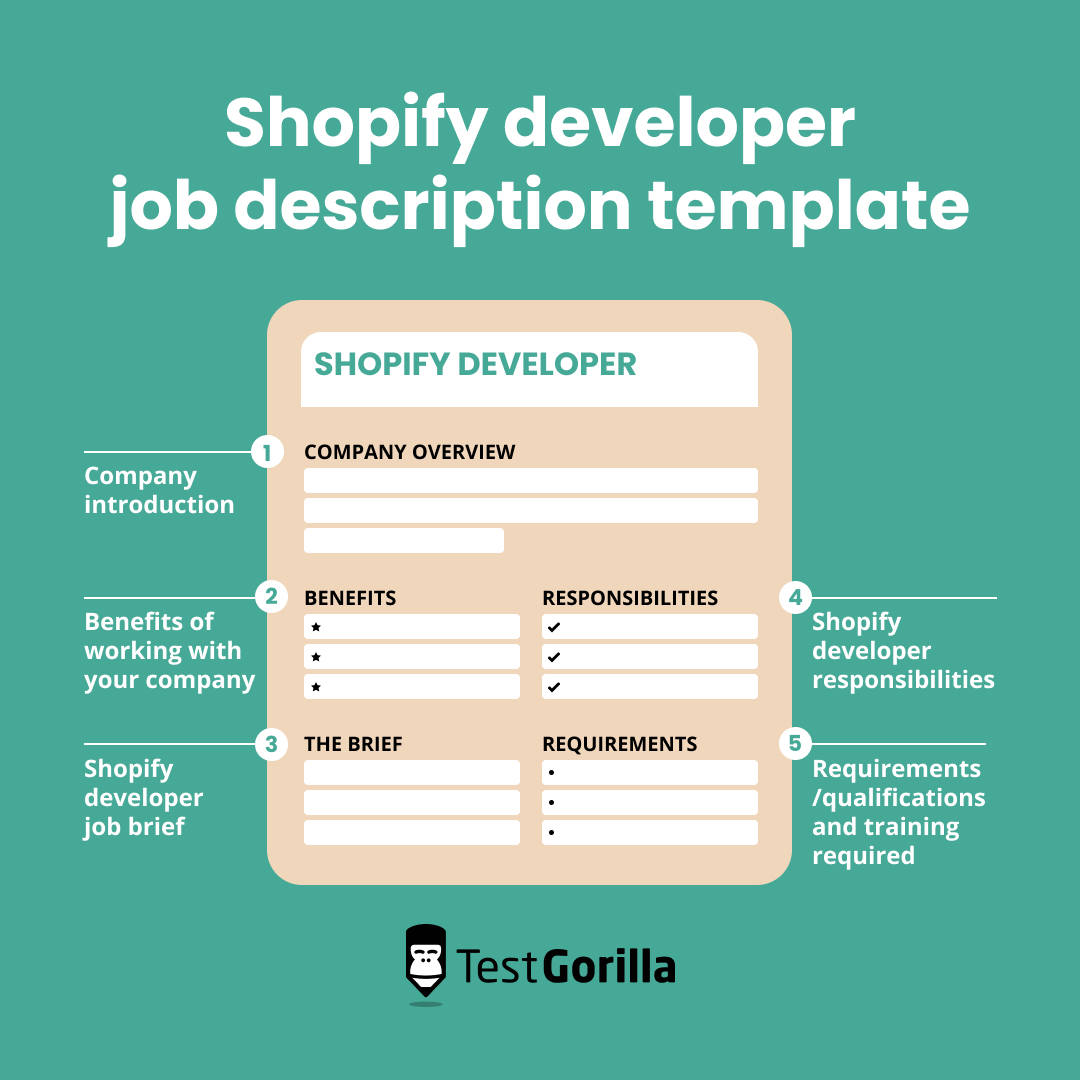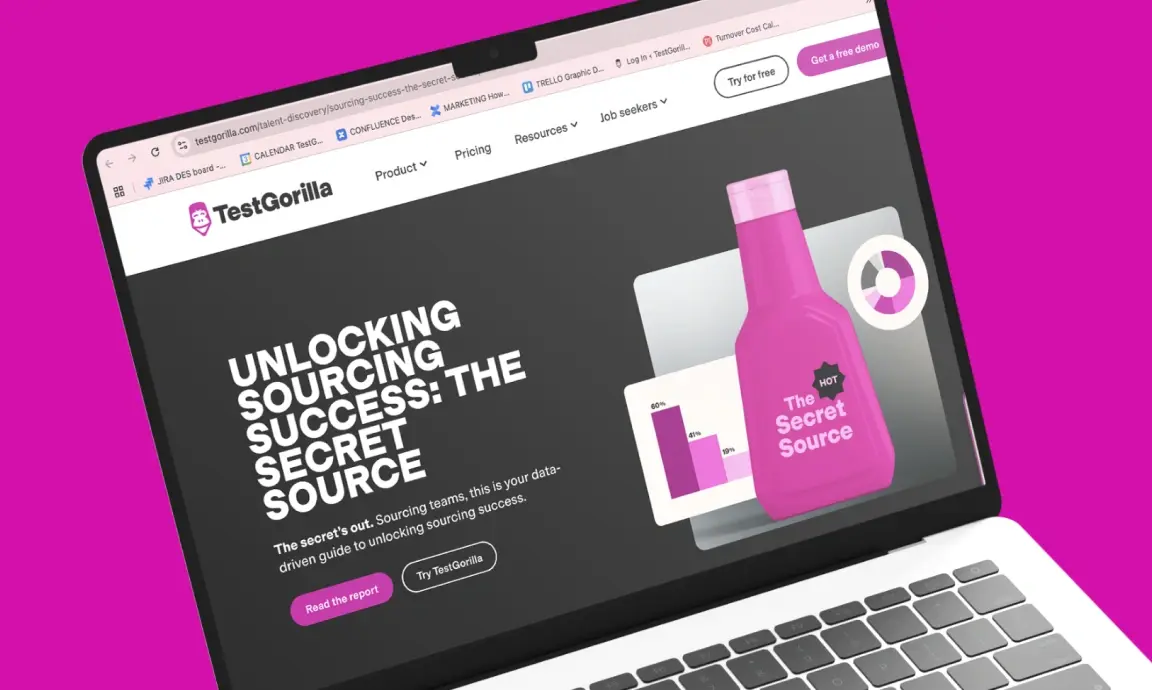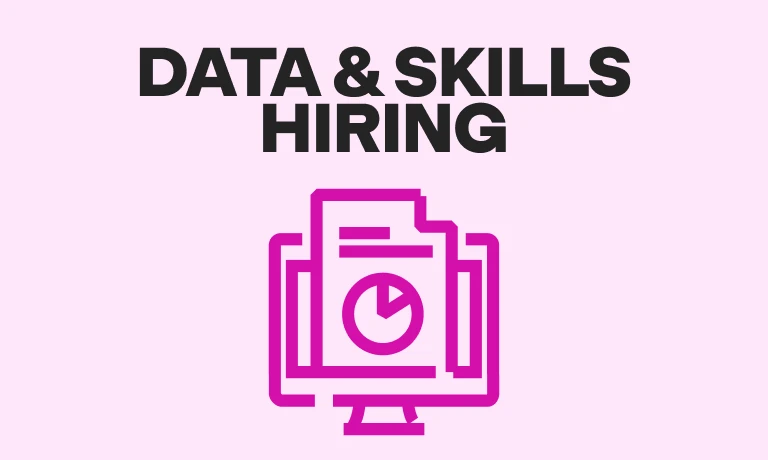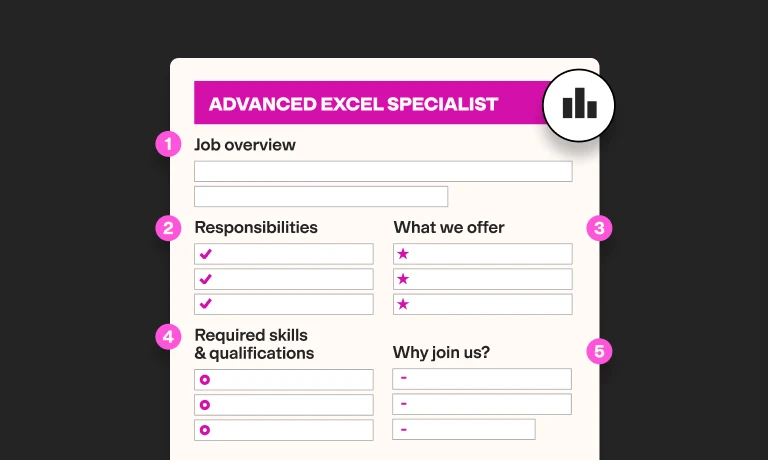Ready to grow your online business?
With a knowledgeable Shopify developer on your team, you can add features to your existing Shopify website or launch a new online store.
Since the person you hire will be critical in growing your company’s revenue from online sales, choosing a developer who knows Shopify inside and out is essential. Hiring an inexperienced developer can frustrate your customers and push them toward your competitors.
Experienced Shopify developers are in high demand, so it can be challenging to find qualified candidates. You need a compelling job description to attract the best applicants in your hiring campaign.
In this guide, we’ll explain how to write an effective Shopify developer job description, share a template you can use in your recruitment, and answer any lingering questions you may have about the role of a Shopify developer.
Table of contents
- What is a Shopify developer?
- Key skills to look for in Shopify developers
- How to write an effective Shopify developer job description
- Shopify developer job description template
- Mistakes to avoid in your Shopify developer job description
- Next steps: Attract and assess Shopify developer candidates
- FAQs
- Use TestGorilla to hire the best Shopify developer today
What is a Shopify developer?
A Shopify developer is a front-end developer specializing in building online stores using Shopify. They can use the platform to code custom site themes and apps for your e-commerce store.
One of the main reasons to hire a Shopify developer is that they can help you build a scalable e-commerce store with one-of-a-kind features. For example, say you want to add merchandising features, like pop-ups, in a way that Shopify doesn’t support natively. A Shopify developer can help you add that feature to your website using code.
Key skills to look for in Shopify developers
Here are several critical skills a Shopify developer should have:
HTML and CSS experience. A lot of the code underlying Shopify e-commerce sites is written in HTML and CSS. Developers should be experts at programming in these languages.
Javascript proficiency. Many Shopify libraries and apps use Javascript, so developers should be comfortable coding in this language.
UX design. Shopify developers are responsible for producing code that will directly impact the user experience of your online store. They should understand the principles of UX design when coding.
Clean coding. Candidates should write clean code that’s reproducible and error-free. Any bugs in your Shopify store’s code could result in downtime and lost sales.
Communication. Shopify developers often work in multidisciplinary teams with UX/UI designers, online store managers, marketers, and others. They must have strong communication skills to work collaboratively and achieve project goals.
The best insights on HR and recruitment, delivered to your inbox.
Biweekly updates. No spam. Unsubscribe any time.
How to write an effective Shopify developer job description
To ensure your job description attracts the right candidates, consider the following best practices:
Describe the Shopify developer you’re seeking
Clearly state the skills and qualities you’re looking for in a Shopify developer. Start by outlining your goals for your online store and how a developer might help you achieve those goals. For example, you could list features you want to build.
After that, dive into the role’s requirements. List the programming languages developers should know and how much experience they should have building Shopify stores.
Also, discuss soft skills like communication, collaboration, and attention to detail. These are especially important if the developer you hire will work on a team with other developers, UX/UI designers, and marketing managers.
Emphasize the benefits of working for your company
Your job description should work as an advertisement for your business and encourage great candidates to go to you rather than a competitor.
You can achieve this by highlighting the benefits your business offers employees and the culture within your company. You should also describe your company’s mission. Many developers prioritize applying for roles at companies that share their values.
Shopify developer job description template
Here’s a template to help you write a great job description for your Shopify developer role, broken down into five parts:
1. Company introduction
Start by introducing your business. Detail when your company was founded, your product or service offerings, the number of employees, the markets you serve, and any awards you’ve won.
Help your job description stand out by weaving Shopify development into this introduction. For example, you can discuss how online sales from a Shopify website have helped your company grow and how a developer can help supercharge that growth.
2. Benefits of working with [your company]
Next, your job description should describe the perks a Shopify developer will enjoy while working for your company. These might include health insurance, retirement savings programs, paid time off, sick time, parental leave, gym membership reimbursement, and remote or hybrid working.
3. Shopify developer job brief
[Company name]
Job Title: [For example, Shopify developer, e-commerce web developer]
Reports to: [For example, senior UX/UI designer, senior web developer, or chief technology officer]
Position Type: [Full-time or part-time; employee or independent contractor]
Location: [Remote, hybrid, or on-site]
[Compensation details]
4. Shopify developer responsibilities
Create custom themes and apps using the Shopify platform
Write error-free HTML, CSS, and Javascript code
Optimize Shopify website performance and security
Collaborate with UX/UI designers to develop online store features
Report project updates to managers and senior developers
5. Requirements/qualifications and training required
A [bachelor’s or master’s degree] in computer science, software engineering, UX/UI design, or a similar field – OR equivalent work experience
[2+] years’ experience as a Shopify developer
Experience programming in HTML, CSS, and Javascript
Mistakes to avoid in your Shopify developer job description
Avoid two common mistakes that may prevent you from hiring the best Shopify developer for your business. Read on for what not to do in your Shopify developer recruitment process:
1. Introduce bias
The use of gendered or ageist phrases in job descriptions can discourage qualified applicants from applying – especially for developer roles. Using such phrases also risks putting your company out of compliance with laws concerning fair employment practices.
Watch out for phrases like “aggressive,” “competitive,” or “driven.” These terms have male-coded undertones and can discourage women from applying. Similarly, avoid phrases like “digital-native” or “energetic,” as these can be perceived as favoring younger candidates over older developers.
2. Ignore soft skills
Focusing only on a candidate’s proficiency in programming languages can be tempting. However, developers must also collaborate with designers, report on their work to project managers, and actively participate in your company culture. Ensure your job description mentions these soft skills as requirements alongside coding skills.
Next steps: Attract and assess Shopify developer candidates
To attract candidates, share your job description on online job boards, LinkedIn, and social media. You can also network with Shopify developers on LinkedIn, GitHub, or at developer conferences. In addition, Shopify has its own Experts Marketplace where you can post your job description.
You can then narrow your applicant pool to the best candidates using a skills-based hiring platform like TestGorilla. We offer hundreds of skills tests to evaluate applicants’ programming skills, soft skills, and personality traits.
Some of the best tests to assess Shopify developers include our Shopify test, HTML test, CSS test, and Javascript test. TestGorilla also offers tests for clean coding, GitHub, and UX/UI design that can shed light on your candidates’ relevant experience.
You can mix and match these programming tests with tests for soft skills like communication, critical thinking, and time management. In addition, TestGorilla offers personality tests and a Culture add test that help you better understand how applicants will integrate into your business and company culture.
TestGorilla enables you to use up to five skills tests to build custom assessments for your Shopify developer candidates. You can also add unlimited one-way video interview questions to learn more about applicants’ Shopify experience, approach to work, and more.
This combined approach will help ensure you hire the right Shopify developer.
Finally, read on for answers to some remaining questions you may have:
FAQs
What does a Shopify developer do?
A Shopify developer is a programmer who can help your business build or customize an online store using Shopify. They can code custom themes and apps that give your e-commerce site a unique look and customer experience. They can also maintain your site’s codebase so that it continues to function smoothly as Shopify rolls out updates to its platform.
How much do Shopify developers make?
According to ZipRecruiter, the average salary for a Shopify developer is $105,000 per year. The highest-paid Shopify developers make up to $180,000 per year. These figures are base salaries and don’t include additional compensation like health or retirement benefits.
Use TestGorilla to hire the best Shopify developer today
The first step in hiring a knowledgeable Shopify developer is to write a strong job description. It should clearly describe your company and what it does, explain the type of developer you’re after (including the skills and experience they need), and outline the benefits and salary for the role.
After you’ve received applications, you can quickly identify top candidates with TestGorilla. Our platform offers hundreds of skills-based hiring tests to assess candidates’ programming skills, soft skills, personality traits, and more.
Sign up for a free TestGorilla account or book a product demo today.
You've scrolled this far
Why not try TestGorilla for free, and see what happens when you put skills first.



















